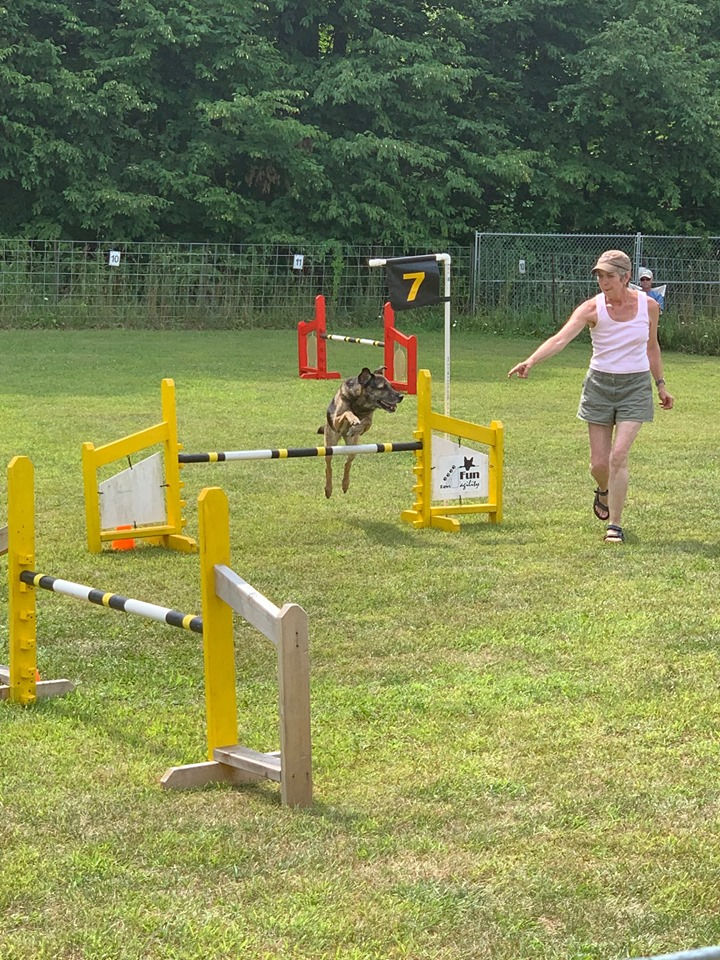He doesn't know sit!
- Hotdiggity Dog Training
- Jul 12, 2021
- 2 min read
Updated: Feb 24, 2022

“She knows this!”
“He knows better!”
Recognize those words? Have you heard someone say them to their dog? Have you said them to your dog?
Those are the words spoken to a dog that has only been partly trained to do something. Those are the words that an owner uses to put the full responsibility for good or compliant behaviour on her dog. And while I’m willing to bet that we’ve all been guilty of this at least once, I’m also willing to bet that 99% of the time, we’ve been wrong . Our dogs didn’t know.
When I was learning to be a dog obedience trainer, this was a key lesson. I was apprenticing, and as part of my apprenticeship, I had to put my dog through a series of classes at my mentor’s school. The instructor for the class noticed that when I told Shiloh, my yellow Lab, to “sit”, sometimes I had to “help” him by putting upward pressure on the leash.
“Don’t do that”, he said.
“If I don’t, he won’t sit right now.” (We were in a parking lot with many distractions.)
“If he doesn’t sit, then he doesn’t know how to sit.”
“Yes he does.”
“No. He doesn’t!”
Guess how ticked I was at this instructor? How dare he tell me that my dog didn’t know how to sit. Of course he did. He was 8 years old and I’d been using the command for the 7 years that I’d had him. I knew my dog. He was just being a jackass.
But I did as I was told, and I stopped “helping” Shiloh obey the command. And you know what? That instructor was right! Sure, Shiloh knew how to “sit” when we were at home or in a calm environment, but he really didn’t know how to do it when he was distracted by cars, people, dogs. He couldn’t focus on what I was saying, so he couldn’t do what I was asking.
I had fooled myself into thinking he understood “sit” because he’d done it so many times, but I had never proofed the behaviour under all types of distracting conditions. He didn’t know “sit”; he knew “sit when there’s nothing around that’s particularly interesting”. He was very good at that!
Like so many people, I had skipped over the all-important step of proofing a behaviour -- making sure that Shiloh knew that I expected him to “sit” no matter what else was in the environment. I had assumed, because I had done a few repetitions of the command and he had obeyed, that he knew it. I was impatient to get on with the next training challenge.
And that’s what I hear when students say “she knows this!” – impatience and lack of training. Our dogs need to practice and practice the things we teach them, and it is our responsibility to give them opportunities to learn.
If we fail to provide those opportunities, then that is on us. Not them. They can only do what they know, not what we think they should know.
.png)



Comments